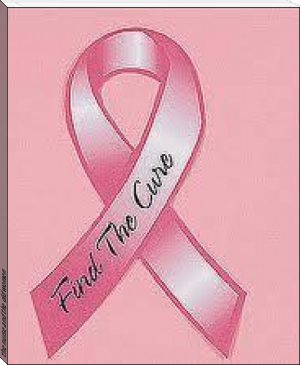Susan by Amy Walton (websites to read books for free .txt) 📕

- Author: Amy Walton
Book online «Susan by Amy Walton (websites to read books for free .txt) 📕». Author Amy Walton
it all right. "What should I do if Sophia Jane asks me straight out whether I said the collar was from her? I couldn't tell her I didn't, and I couldn't tell her I did. Oh, how I wish I had not put it off." Now, in all her reflections, Susan still made excuses for herself, and still said, "it was not my fault." She did not see that she had been mean and jealous and deceitful; but she did see that she had got herself into a difficulty, and was anxious, not to atone for her fault, but to escape the consequences of it. When conscience told her that the right thing was confession to her companion, she would not listen. "After all," she said, "she perhaps won't ask me, and then it will be all right; for I _certainly will_ explain it to Mademoiselle, as I always meant to." And in this way Susan got more and more enclosed in the tangled web she was weaving; for how can we make anything right unless we first see that it is wrong?
Sophia Jane continued better, and was much looking forward, Aunt Hannah said, to her companion's visit. Susan was cautioned before she went upstairs to be very kind and gentle, not to vex or thwart the invalid, and to call Buskin if anything should be wanted. Aunt Hannah would go out a little while, which she had scarcely done since Sophia Jane's illness. All this was promised, and it seemed another reason against saying anything about the collar; for, if Sophia Jane knew the truth, it would certainly vex and thwart her. Susan collected some things which she thought might amuse her, and perhaps prevent her from dwelling long on the dreaded subject. The game of dominoes, Grace, a box of beads, and Andersen's fairy tales. Struggling upstairs with these, she was soon in the invalid's room.
Sophia Jane looked much more like herself than when Susan had last seen her. She was lying quietly down among her pillows with a very white little face, and one hand resting feebly on the substantial form of Dinah, Margaretta's black doll. By her side was a tiny bunch of snowdrops which Nanna had found in the garden that morning; how kind everyone was to her now! It gave Susan a little pang to remember that she herself had done nothing to please her, but just the opposite. Often, when Sophia Jane was well, she had asked to be allowed to have Dinah to herself for a little while, but had always been refused. Now, here she was. She was a most attractive doll, for there was a foreign air about her that distinguished her from all English ones. The nuns at Bahia had stuffed her so cleverly that her plump black face and limbs glistened; she wore earrings, a gay turban, and very full flowered chintz skirts. All her under-garments would "take off," and were trimmed with curious hand-made lace. It was a great privilege to be allowed to play with her.
Sophia Jane received her visitor quietly, with a small pinched smile. In answer to Susan's inquiries she pronounced herself better, but added with her usual old-fashioned air:
"I'm not well yet, though. I'm still ill and shaky."
"What would you like to play at?" was Susan's next inquiry put rather hastily.
"Nothing at all," was the decided answer. "I want to talk."
"But," said Susan earnestly, "aunt told me you were not to talk much-- she did, really."
"Well, I'll ask questions, and you talk," said Sophia Jane.
"Wouldn't you rather have a game of dominoes?" Susan ventured to suggest.
"No," answered Sophia Jane snappishly, "I wouldn't." Such an angry gleam came into her eyes that Susan, remembering she was not to vex or thwart her, resigned herself to be questioned. Her heart beat quickly. What would the first question be? It was quite an easy one.
"Did she like it?" asked Sophia Jane, settling herself comfortably on her elbow, and staring at her companion.
"Very much indeed," answered Susan.
"Did it fit him? Tell me all about it."
"Beautifully. I put it on myself, and he looked very nice in it. I had dinner with Mademoiselle, and she made an omelette--and coffee--and I helped to lay the table--and to wash the things afterwards--and she told me Monsieur has got some more lessons. Then she brought me home, and on the way we saw Mrs Jones standing in the door of the shop. She's not a nice-looking woman, but Mademoiselle says she has a noble heart. I should think it must be horrid to be a butcher's wife. Shouldn't you?"
Pausing for a reply, Susan gave a nervous glance at her companion, whose eyes were still fixed upon her, and who took no notice whatever of the question.
"Did Mademoiselle send a message to me about the collar?" she asked.
"No, she didn't," said Susan. Then, seeing how crest-fallen the poor little face looked, she added hastily:
"I expect she means to come and thank you herself, or perhaps to write you a letter."
A small tear had gathered in each of Sophia Jane's eyes, but she winked them quickly away.
"You're _sure_," she said in a troubled voice, "that she understood it was from me?"
The moment had come. Susan looked straight back in her friend's face and answered instantly:
"Yes; I am quite sure."
It was over. She had now told a real story--a very bad one. Nothing worse could happen.
Sophia Jane seemed satisfied, She gave a little sigh, and said softly:
"Thank you. Then I expect she'll write."
After this she did not mention the collar again, but was willing to play at dominoes, though she could not get through more than one game.
"I'm tired now," she said. "You may read aloud." When, however, she found that Susan had only brought a book of fairy tales, she was much displeased, and declared fretfully that fairy tales were nonsense. "They're wicked too," she added, "because they tell stories."
Susan disputed this, whereupon Sophia Jane grew so excited and angry, and spoke in such a shrill voice that Buskin came in from the next room to see what was the matter.
"You've been here long enough, Miss Susan," she said, glancing at Sophia Jane's flushed cheeks. "You better go down-stairs and let Miss Sophia Jane be quiet. It's time she took her medicine."
Susan collected her property and went away. There were a good many things to carry, but she took one with her which weighed more heavily than all the rest put together--the knowledge that she had told a story.
And now, at last, her eyes were opened wide, and she could see clearly the tangled web she had been weaving for some time past. She could see that she had first despised Sophia Jane, and then been jealous of her; first been conceited and proud, and then mean and deceitful. Good Susan no longer, but far far worse than her poor little friend, whom she had always considered so naughty. Little by little the web had become more and more twisted and confused. Would it ever be straight again? She made no excuse for herself now. Her heart was so full of sorrow and repentance that she hardly knew how to bear it, and, creeping sorrowfully up into the attic, she cast herself down on the big black box and cried. She had thought herself so good since she had come to Ramsgate, they had all told her so, and yet how naughty she had been-- naughtier and naughtier, until at last she had told a story. What should she do? An old rhyme of Maria's came into her head as she lay there sobbing:
"A fault confessed Is half redressed."
That was what she must do. Confess it all to Sophia Jane. But what a humbling, miserable thing! She could see the expression on Sophia Jane's face when she heard that Susan--good Susan--who had always been held up as an example, had deceived Mademoiselle and told a story. "Oh, I _couldn't_!" said Susan to herself. "Anything else--any other punishment I would bear, but _not_ that." And then she went on to remember Monsieur and Mademoiselle would know too, and they would never like her again, or think her a good little girl--it would be too dreadful. "I shall never never be happy again any way," said Susan half aloud. "If I don't tell I shall be miserable, and if I do tell I shall be miserable too."
Nanna's voice calling her down to tea put an end for the moment to these thoughts; but they came back during the evening with yet greater force, and when she went to bed she felt unhappier than she had ever been in her life. She was still, however, undecided about confessing her fault.
During the next few days she did not see Sophia Jane, though the improvement continued. It was a relief not to see her; and yet to go about with a feeling like a lump of lead in her bosom was not, Susan found, a comfortable thing. It did not get lighter as each day passed, and at last something happened which so increased its weight that she thought any punishment--any open disgrace--would be easier to bear. For, how it happened no one could tell, Sophia Jane managed to catch a chill, the fever returned with renewed violence, and she became seriously ill again. Susan could soon tell from the grave face of the doctor, and from the scraps of conversation she overheard, that her poor little companion was even worse than she had been. Besides this, Mr Bevis came one evening, and after he had talked a little while to Aunt Hannah her eyes filled with tears, and Susan heard her say:
"The child's life hangs on a thread."
Mr Bevis said some texts and soon went away, but that one sentence remained in Susan's mind and made her more miserable than ever. A thread! It was such a thin, weak thing to hang on, and if it snapped where would Sophia Jane's life be? Perhaps it would break soon, that very night, before she could see her again and ask her pardon. It was such a dreadful thought that Susan was unable to keep it to herself any longer. She shut her eyes, said her evening prayer all through, and at the end added very earnestly: "Don't let it break. _Please_ don't let it break."
Then Margaretta came rushing into the sitting-room where Susan was curled up in the window seat. She looked pale and frightened.
"Where's Aunt Hannah?" she said.
"Just gone out of the room," answered Susan.
"Oh!" she added, "_do_ tell me--is Sophia Jane worse?"
"I don't know," said Margaretta hurriedly. "I want aunt. She ought to see her; I think perhaps she would send for Dr Martin again."
Dr Martin was sent for, and came, but he did not give much comfort.
"You can't do anything," he said, "but try and keep up her strength. A great deal will depend on the next few hours."
From her lonely corner Susan watched
Sophia Jane continued better, and was much looking forward, Aunt Hannah said, to her companion's visit. Susan was cautioned before she went upstairs to be very kind and gentle, not to vex or thwart the invalid, and to call Buskin if anything should be wanted. Aunt Hannah would go out a little while, which she had scarcely done since Sophia Jane's illness. All this was promised, and it seemed another reason against saying anything about the collar; for, if Sophia Jane knew the truth, it would certainly vex and thwart her. Susan collected some things which she thought might amuse her, and perhaps prevent her from dwelling long on the dreaded subject. The game of dominoes, Grace, a box of beads, and Andersen's fairy tales. Struggling upstairs with these, she was soon in the invalid's room.
Sophia Jane looked much more like herself than when Susan had last seen her. She was lying quietly down among her pillows with a very white little face, and one hand resting feebly on the substantial form of Dinah, Margaretta's black doll. By her side was a tiny bunch of snowdrops which Nanna had found in the garden that morning; how kind everyone was to her now! It gave Susan a little pang to remember that she herself had done nothing to please her, but just the opposite. Often, when Sophia Jane was well, she had asked to be allowed to have Dinah to herself for a little while, but had always been refused. Now, here she was. She was a most attractive doll, for there was a foreign air about her that distinguished her from all English ones. The nuns at Bahia had stuffed her so cleverly that her plump black face and limbs glistened; she wore earrings, a gay turban, and very full flowered chintz skirts. All her under-garments would "take off," and were trimmed with curious hand-made lace. It was a great privilege to be allowed to play with her.
Sophia Jane received her visitor quietly, with a small pinched smile. In answer to Susan's inquiries she pronounced herself better, but added with her usual old-fashioned air:
"I'm not well yet, though. I'm still ill and shaky."
"What would you like to play at?" was Susan's next inquiry put rather hastily.
"Nothing at all," was the decided answer. "I want to talk."
"But," said Susan earnestly, "aunt told me you were not to talk much-- she did, really."
"Well, I'll ask questions, and you talk," said Sophia Jane.
"Wouldn't you rather have a game of dominoes?" Susan ventured to suggest.
"No," answered Sophia Jane snappishly, "I wouldn't." Such an angry gleam came into her eyes that Susan, remembering she was not to vex or thwart her, resigned herself to be questioned. Her heart beat quickly. What would the first question be? It was quite an easy one.
"Did she like it?" asked Sophia Jane, settling herself comfortably on her elbow, and staring at her companion.
"Very much indeed," answered Susan.
"Did it fit him? Tell me all about it."
"Beautifully. I put it on myself, and he looked very nice in it. I had dinner with Mademoiselle, and she made an omelette--and coffee--and I helped to lay the table--and to wash the things afterwards--and she told me Monsieur has got some more lessons. Then she brought me home, and on the way we saw Mrs Jones standing in the door of the shop. She's not a nice-looking woman, but Mademoiselle says she has a noble heart. I should think it must be horrid to be a butcher's wife. Shouldn't you?"
Pausing for a reply, Susan gave a nervous glance at her companion, whose eyes were still fixed upon her, and who took no notice whatever of the question.
"Did Mademoiselle send a message to me about the collar?" she asked.
"No, she didn't," said Susan. Then, seeing how crest-fallen the poor little face looked, she added hastily:
"I expect she means to come and thank you herself, or perhaps to write you a letter."
A small tear had gathered in each of Sophia Jane's eyes, but she winked them quickly away.
"You're _sure_," she said in a troubled voice, "that she understood it was from me?"
The moment had come. Susan looked straight back in her friend's face and answered instantly:
"Yes; I am quite sure."
It was over. She had now told a real story--a very bad one. Nothing worse could happen.
Sophia Jane seemed satisfied, She gave a little sigh, and said softly:
"Thank you. Then I expect she'll write."
After this she did not mention the collar again, but was willing to play at dominoes, though she could not get through more than one game.
"I'm tired now," she said. "You may read aloud." When, however, she found that Susan had only brought a book of fairy tales, she was much displeased, and declared fretfully that fairy tales were nonsense. "They're wicked too," she added, "because they tell stories."
Susan disputed this, whereupon Sophia Jane grew so excited and angry, and spoke in such a shrill voice that Buskin came in from the next room to see what was the matter.
"You've been here long enough, Miss Susan," she said, glancing at Sophia Jane's flushed cheeks. "You better go down-stairs and let Miss Sophia Jane be quiet. It's time she took her medicine."
Susan collected her property and went away. There were a good many things to carry, but she took one with her which weighed more heavily than all the rest put together--the knowledge that she had told a story.
And now, at last, her eyes were opened wide, and she could see clearly the tangled web she had been weaving for some time past. She could see that she had first despised Sophia Jane, and then been jealous of her; first been conceited and proud, and then mean and deceitful. Good Susan no longer, but far far worse than her poor little friend, whom she had always considered so naughty. Little by little the web had become more and more twisted and confused. Would it ever be straight again? She made no excuse for herself now. Her heart was so full of sorrow and repentance that she hardly knew how to bear it, and, creeping sorrowfully up into the attic, she cast herself down on the big black box and cried. She had thought herself so good since she had come to Ramsgate, they had all told her so, and yet how naughty she had been-- naughtier and naughtier, until at last she had told a story. What should she do? An old rhyme of Maria's came into her head as she lay there sobbing:
"A fault confessed Is half redressed."
That was what she must do. Confess it all to Sophia Jane. But what a humbling, miserable thing! She could see the expression on Sophia Jane's face when she heard that Susan--good Susan--who had always been held up as an example, had deceived Mademoiselle and told a story. "Oh, I _couldn't_!" said Susan to herself. "Anything else--any other punishment I would bear, but _not_ that." And then she went on to remember Monsieur and Mademoiselle would know too, and they would never like her again, or think her a good little girl--it would be too dreadful. "I shall never never be happy again any way," said Susan half aloud. "If I don't tell I shall be miserable, and if I do tell I shall be miserable too."
Nanna's voice calling her down to tea put an end for the moment to these thoughts; but they came back during the evening with yet greater force, and when she went to bed she felt unhappier than she had ever been in her life. She was still, however, undecided about confessing her fault.
During the next few days she did not see Sophia Jane, though the improvement continued. It was a relief not to see her; and yet to go about with a feeling like a lump of lead in her bosom was not, Susan found, a comfortable thing. It did not get lighter as each day passed, and at last something happened which so increased its weight that she thought any punishment--any open disgrace--would be easier to bear. For, how it happened no one could tell, Sophia Jane managed to catch a chill, the fever returned with renewed violence, and she became seriously ill again. Susan could soon tell from the grave face of the doctor, and from the scraps of conversation she overheard, that her poor little companion was even worse than she had been. Besides this, Mr Bevis came one evening, and after he had talked a little while to Aunt Hannah her eyes filled with tears, and Susan heard her say:
"The child's life hangs on a thread."
Mr Bevis said some texts and soon went away, but that one sentence remained in Susan's mind and made her more miserable than ever. A thread! It was such a thin, weak thing to hang on, and if it snapped where would Sophia Jane's life be? Perhaps it would break soon, that very night, before she could see her again and ask her pardon. It was such a dreadful thought that Susan was unable to keep it to herself any longer. She shut her eyes, said her evening prayer all through, and at the end added very earnestly: "Don't let it break. _Please_ don't let it break."
Then Margaretta came rushing into the sitting-room where Susan was curled up in the window seat. She looked pale and frightened.
"Where's Aunt Hannah?" she said.
"Just gone out of the room," answered Susan.
"Oh!" she added, "_do_ tell me--is Sophia Jane worse?"
"I don't know," said Margaretta hurriedly. "I want aunt. She ought to see her; I think perhaps she would send for Dr Martin again."
Dr Martin was sent for, and came, but he did not give much comfort.
"You can't do anything," he said, "but try and keep up her strength. A great deal will depend on the next few hours."
From her lonely corner Susan watched
Free e-book «Susan by Amy Walton (websites to read books for free .txt) 📕» - read online now
Similar e-books:





Comments (0)